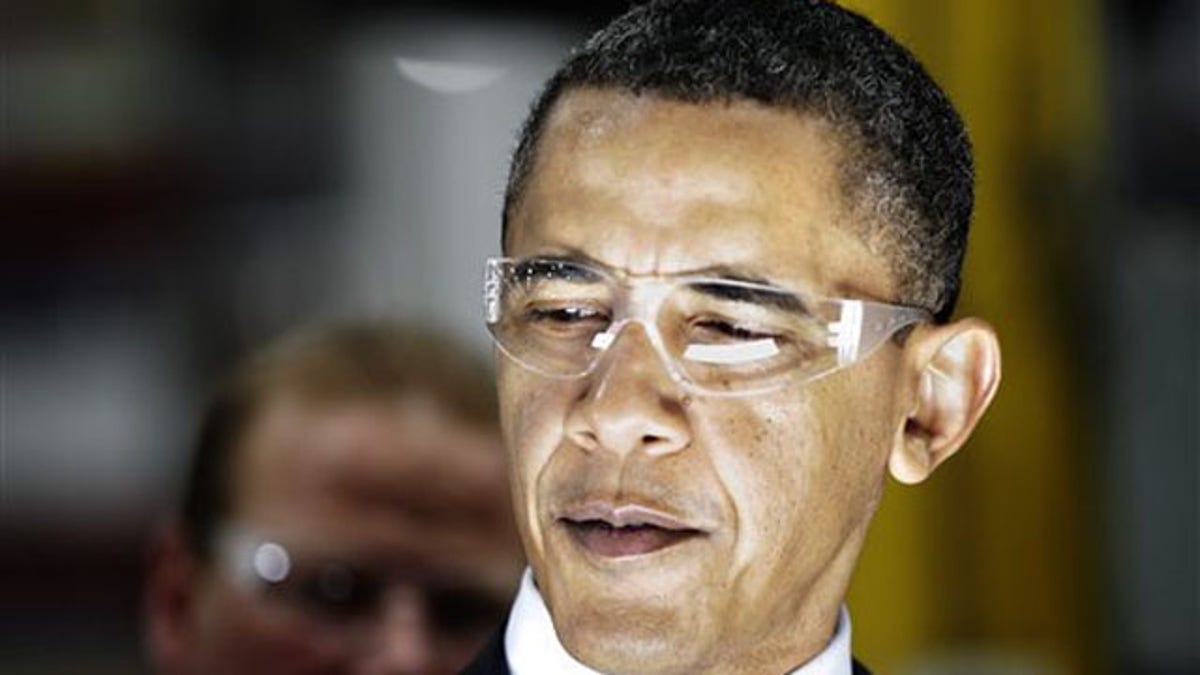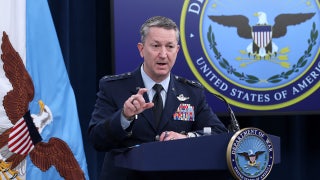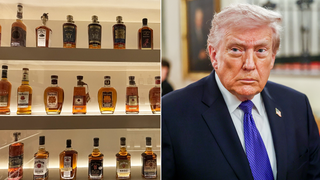
President Obama is shown here touring an energy company in Manitowoc, Wis., Jan. 26. (AP)
WASHINGTON -- When President Barack Obama named Gene Sperling as his chief economic adviser, two of Sperling's early calls went to AFL-CIO President Richard Trumka and U.S. Chamber of Commerce President Thomas Donohue.
Known for his pugilistic style, Donohue wasted no time. Come on over, he said.
When Sperling crossed Lafayette Square, the park that separates the White House from the business lobby's headquarters, Donohue welcomed him with characteristic bluntness:
"Glad to have someone over there I'm comfortable sparring with at 10 a.m. and sitting down with at 2 p.m. to work on policy."
The story, confirmed by White House and Chamber officials, helps illustrate the 2011 version of this relationship.
After two years of vociferous conflict over health care and financial regulations, the two have entered into something of a detente.
Obama has scheduled a speech Monday at the chamber, a first for him. Not four months ago, he had attacked the huge, Republican-leaning trade organization for failing to disclose donors to its $32 million congressional political campaign,
"Their lips are sealed," Obama said at the time, "but the floodgates are open."
Their bitter fights overshadowed areas of solid agreement, including the Chamber's support of Obama's 2009 economic stimulus plan and the bailout of General Motors and Chrysler. Obama played a populist hand, referring to bankers as "fat cats," rebuking corporate lobbyists and casting the insurance industry as an antagonist in the health care debate.
The White House and the Chamber now are highlighting areas of common ground and expressing a joint commitment to creating jobs. Obama has stressed his new economic agenda, featuring competitiveness, innovation, energy and entrepreneurship. Disagreements linger and are no less vehement, but they no longer are the subject of loud legislative battles and big dollar advertising campaigns by the Chamber.
"What's changed now. I would use four words," Donohue said in an interview with the Associated Press. "The election has changed."
The Republican wave in November wrested control of the House from Democrats. It created a need for a more compromising legislative process and for the type of outreach Obama did not seek -- and Republicans did not offer -- when Democrats were in total control.
White House officials say Obama's speech will not break new policy ground, nor will he offer an olive branch. In his radio and Internet address Saturday, Obama said businesses have an obligation to stay in the United States, hire American workers and invest in the nation's future.
"That's the message I'll be bringing to American business leaders at the Chamber of Commerce on Monday -- that government and businesses have mutual responsibilities, and that if we fulfill these obligations together, it benefits us all," he said.
The speech -- part nudge, part courtship -- is a message to business that is hardly limited to the Chamber of Commerce. Obama met with some of the nation's top 20 executives in December, gently prodding them to get cash off their balance sheets and use it to create jobs. Also in December, he negotiated a compromise with Republicans on tax cuts that won him some grudging boardroom support.
Obama has offered to undertake a wholesale review of regulations to see which ones work and which ones stifle innovation. The financial sector, facing an enormous dose of new rules, is waiting to see how the banking regulatory overhaul is put into place. Bankers like his words, even if they have yet to see tangible results.
"The change in tone is a positive step," said Scott Talbott, a senior lobbyist for the Financial Services Roundtable, a major banking industry group.
Obama needs the centrist cloak that the business community offers. The Chamber can benefit by softening the sharp edges it developed fighting health care, tighter financial rules and attacking many Democrats in the midterm campaign.
Both sides need each other for policy, as well. The Chamber can help the Obama administration win congressional support of trade deals, particularly a recently renegotiated pact with South Korea. Both the White House and the Chamber face Republican opposition to increased spending on public works, from roads and bridges to wireless networks.
On trade, infrastructure, and mostly on regulations, Donohue said, companies want certainty from the government.
"The reason the companies are sitting on $2 trillion worth of cash is because of uncertainty," he said,
Obama long has had allies in the private sector. He has given corporate CEOs advisory roles, and throughout his first two years, he held periodic lunches with executives at the White House. But until now, he had not brought them into his inner circle.
Last month, that changed. Obama named former Bill Daley, a former commerce secretary and JP Morgan Chase executive, as his chief of staff. He promoted Sperling, a known quantity to the business community. He gave high-profile assignments to General Electric CEO Jeff Immelt and AOL founder Steve Case.
"Daley is a big time Democrat, but he's a sound guy," Donohue said. "He knows how the town works, he knows how business works. He knows how the system works."
Still, the Chamber can be a sharp-elbowed foe.
"The Chamber is an enormously sophisticated Washington insider organization and is run by very conservative Republican operatives, for the most part," said Matt Bennett, a vice president at the centrist but Democratic leaning Third Way. "That relationship is always going to be more difficult than the broader outreach to business,"
But the joint focus these days is jobs. In front of the 10 massive Corinthian columns that grace the front of the Chamber's building, Donohue has authorized the placement of giant banners that spell out J-O-B-S.
The letters are visible from the White House through the bare winter trees of Lafayette Square -- offering both a sign of common purpose and a reminder to the White House occupant of the 9 percent unemployment rate that still bedevils him.












































